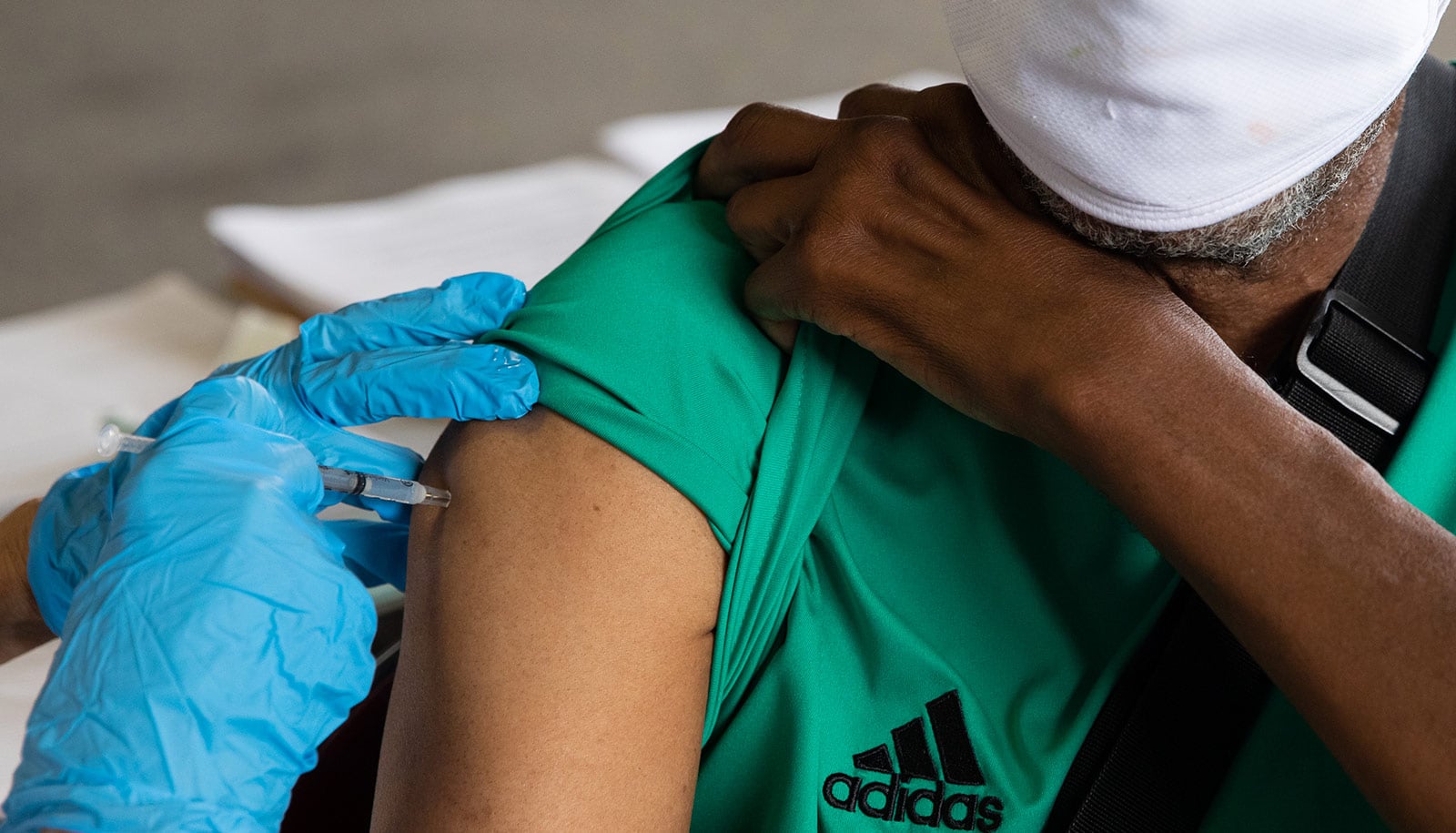
"Our data show that, compared to subcutaneous vaccination, the intranasal route improved the response of certain immune cells, known as T cells, which reduced disease severity," says lead author Ashley St John. (Credit: Getty Images )
Nasal spray vaccine may offer better, longer COVID protection
Administering a COVID-19 vaccine as a nasal spray, rather than as an injection, may increase the vaccine’s overall effectiveness.
Researchers have discovered a potential intranasal vaccine candidate that provides improved, longer-lasting immunity against SARS-CoV-2 viruses compared to when given as an injection.
In a new study, the researchers found that by triggering an immune response directly at the point of entry, the intranasal vaccine candidate enhanced long-term immune memory of the virus, which could translate to a reduced need for booster shots.
There is growing evidence that intranasal vaccines provide greater protection at mucosal surfaces, making this a vaccination route that could reduce breakthrough infections and subsequent transmission of the virus.
To delve into this, the researchers compared the immune responses from nasal and subcutaneous administration of the vaccine, as well as immunity from the vaccine with and without the use of adjuvants—substances added to vaccines to enhance the body’s immune response.
Published in eBioMedicine , the findings showed nasal administration of the vaccine candidate boosted mucosal antibody response, as expected. Additionally, and more importantly, it enhanced longer-lasting mucosal and systemic immune protection through preferential induction of airway-resident T cells and central memory T cells.
“Our data show that, compared to subcutaneous vaccination, the intranasal route improved the response of certain immune cells, known as T cells, which reduced disease severity,” says lead author Ashley St John, associate professor in the emerging infectious diseases program at Duke-NUS.
“Not only that, but it also resulted in a greater number of T central memory cells compared to subcutaneous vaccination, which could lead to longer-lasting protection.”
T central memory cells play a vital role in safeguarding the body upon re-exposure to a virus. They enhance the immune system’s memory, inducing long-lasting protective immune responses . This ability to retain this long-term memory of the virus suggests less need for a pathogen challenge to achieve the same level of protection against the virus, potentially translating into fewer boosters.
The research team also found that the use of adjuvants in the vaccine to promote immune response influenced the characteristics of T cells, as well as their activation and production of cytokines—tiny proteins that regulate cell communication and control inflammation—with different adjuvants leading to different T-cell responses.
Another notable finding from the study was that a type of antibody, called IgG, that circulates widely in the bloodstream is more effective at neutralizing variants of the virus, including newly emergent ones, when induced through the nasal vaccine route. These discoveries provide important scientific evidence that improved immunity responses from both T cells and IgG antibodies contribute to greater and long-lasting protection of intranasal vaccines from COVID-19.
“While the acute phase of the pandemic may be behind us, the rise of new variants , including JN.1, which has triggered an increase in hospital admissions locally, demonstrates that we have room in our arsenal of vaccines and treatments for even better tools. This study shows that mucosal vaccination holds promise for improving COVID-19 vaccine efficacy with potentially fewer boosters needed,” says Professor Patrick Tan, senior vice-dean for research.
The researchers have filed a patent on the discovery which covers the invention of the vaccine composition formulated for mucosal delivery, paving the way for an industry partnership to potentially develop mucosal vaccines against COVID-19 and other pathogens that also target mucosal surfaces.
Source: Duke-NUS
The post Nasal spray vaccine may offer better, longer COVID protection appeared first on Futurity .
Share this article:
This article uses material from the Futurity article, and is licenced under a CC BY-SA 4.0 International License. Images, videos and audio are available under their respective licenses.
Related Articles:
Boosters may be vital for Omicron protection
Dec. 20, 2021 • futurityCOVID patients face risk for self-attacking antibodies
Sept. 17, 2021 • futurityLinks/images:
- https://www.futurity.org/nasal-vaccine-covid-19-sars-cov-2-viruses-2798692/
- https://doi.org/10.1016/j.ebiom.2023.104924
- https://www.futurity.org/immune-response-sex-covid-2852862/
- https://www.futurity.org/covid-variants-antibodies-viruses-2950952/
- https://www.duke-nus.edu.sg/allnews/potential-nasal-covid-19-vaccine-candidate
- https://www.futurity.org/nasal-spray-vaccine-covid-protection-3149122/
- https://www.futurity.org


